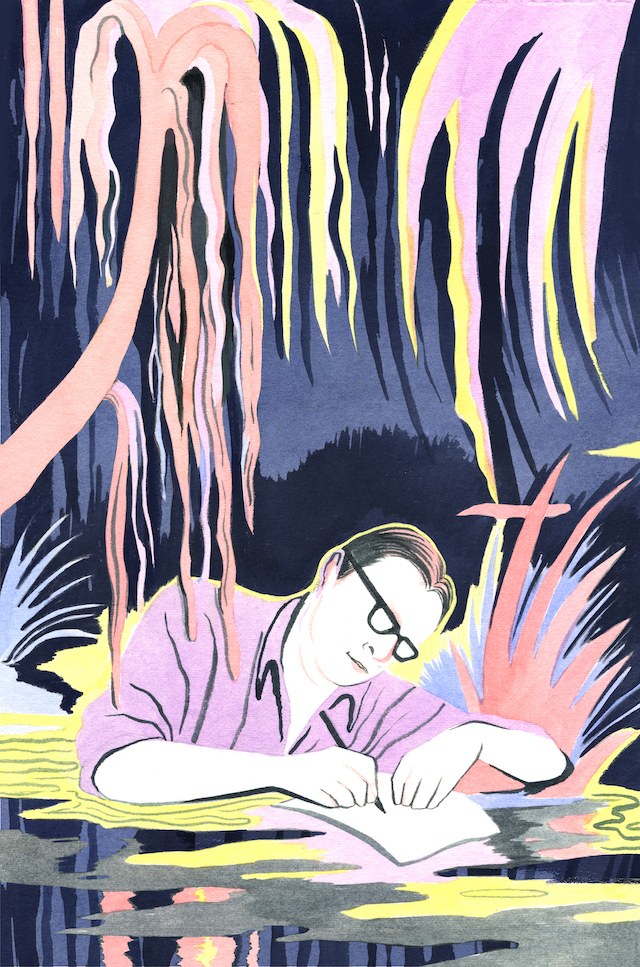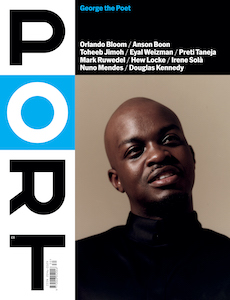Douglas Kennedy is the author of 15 novels, including international bestsellers The Big Picture and The Pursuit of Happiness. Splitting his time between Maine, Paris, Berlin and London, his work has been translated into 22 languages and earned him l’Ordre des Arts et des Lettres. In the following essay he explores the myths, art and graft of writing, looking at the myriad ways writers through the ages have put pen to paper

A morning coffee with a fellow writer in Paris. She’s a cigarette junkie. She has chewed fingernails. Her intimate life makes twice-divorced me look like a paragon of domestic stability. She also happens to be one of the smartest, most original people I know. On the morning in question, we’re meeting in a café near my apartment in the 10th arrondissement. She looks like sleep has been sidestepping her. When I ask her how the work is faring, she puts up her hand, like police stopping oncoming traffic.
“You know me” she says. “I write my way through all crises. But since the second pandemic confinement, my concentration has been shot. I find myself thinking: what’s the point of telling stories at a moment when the world as we know it is coming unhinged, when this pandemic and all its shitty ramifications have completely broken everyone’s concentration? Living constantly in the ongoing stupidity of being ‘online’. It’s become an addiction, a way to avoid the novel that my publishers think is being delivered next month.”
Lighting up another cigarette off the embers of the last one she asks me, “Any thoughts how I get out of this creative cul-de-sac?”
I think about this for a moment, knowing that my friend hates American-style pep talks or words of encouragement, as it runs counter to her preferred ongoing existential gloom. I just say: “Well, there is a button on the iPhone called ‘off’; just as you can disconnect the WiFi on your laptop. But that means making a conscious choice to detach from the exterior world and concentrate on getting words down on a page.”
“So what you’re telling me is: ‘Just fucking write.’”
Trying to write when the last thing you want to do is write… that is something that every professional scribe I know has grappled with over the years. I speak as someone who has been living by his pen for 39 years – and is currently finishing his 24th book. Given all that, I still wouldn’t hold myself up as an example of writerly rigor and discipline. Because I damn well know just how befuddling quotidian life can be; how the temptation to dodge the daily quota of words is ceaseless. Especially in such distracted times – where the pandemic and the ascent of the totalitarian impulse in many once-stable democracies has given rise to a general feeling of impending calamity. As such, it’s not surprising that so many of my writing friends talk about an inability to focus during this moment of ongoing exigency.
Writing may be an art, but it’s also a metier. And one for which there is no fixed set of guidelines or instruction manual to follow. My preferred comment on the craft of fiction comes from the ever-great Somerset Maugham: “There are three rules for writing a novel. Unfortunately, nobody knows what they are.”
Some people, however, think they have an idea. At a dinner with a vainglorious (ergo: insecure) French journalist who’d just published a turgid seven-hundred-page fictional tome, he asked me how long my then-recent novel, The Woman in the Fifth, had taken to write. I told him that, as I’d been in the middle of an insomniac period (fuelled by a failing marriage), I’d managed to turn out a first draft in about four months. He laughed derisively.
“I needed eight years!” he said. “Eight years is necessary for a masterpiece.”
I strongly disagreed. “Dostoevsky wrote Crime and Punishment in three months to pay off some serious gambling debts. And that novel remains one of the cornerstones of Western literature. So why does eight years’ work immediately imply that you’ve written a masterpiece?”
The journalist – a thin-skinned fellow – got up from the café table where this conversation was taking place in front of several other people and told me to essentially go screw myself. As soon as he was out of hearing range, another writer at the same table noted: “… and Simenon could write a masterpiece in 15 days.” This is true.
Indeed, when it comes to the business of turning out words, everyone’s methodology is profoundly different. Gustav Flaubert – who had a small family fortune, no wife, no children – wrote on average just 100 words per day. Which meant it took him almost five years to write Madame Bovary. The aforementioned Georges Simenon was at the opposite end of the productivity spectrum, turning out an average of 40 manuscript pages a day (and André Gide got it right when he called him one of the most important Francophone writers of the 20th century). And then there is the phenomenon that is the still-active, ever-prolific Joyce Carol Oates – who has published over 58 novels and 30 collections of short stories and, though now in her early 80s, shows no inclination to decrease her insane productivity. It should also be noted she is a deeply serious writer who is often spoken about as a future Nobel laureate.
Personally, I wish I could be as effortlessly prolific. Instead, I use the same method that Hemingway and Graham Greene both adopted: a minimum of 500 words per day, six days a week. That’s about 12 manuscript pages per week. Six hundred pages per annum.
And though I have desks in the places I call home (Maine, Paris, Berlin, London), I rarely use them, preferring a sofa with a leg extension or that great triumph of mid-century American design, an Eames chair, on which to write. I know novelists who need soundproof circumstances – a veritable monk’s cell, insulated against outside distraction – to work. Just as there are those who must write at the same time every day for the proverbial magic to happen. But I can write anywhere. In a café. On the metro. I prefer the fact that my output of words is punched out in disparate locations. It’s a way of mitigating the lonely, vertiginous nature of my craft – but the fact that I am doing it in perpetual motion (and am, in fact, finishing this essay on a train from northern Sweden to Stockholm) also feeds the narrative. Writing affords me the possibility of changing the work décor constantly – and, as such, absorbing the new on a regular basis. Which, for me, keeps my world-view fresh. Being on the constant move also helps mitigate the deep sense of ongoing doubt – which, truth be told, is part of the creative equation for all authors.
Doubt is that appallingly noisy neighbour who knocks on your subconscious in the middle of the night and whispers: ‘Do you really think you can keep doing this and keep it good? Truth be told, it’s merde’… and yet whom you will never be able to evict from that space between your ears.
As such, doubt is just one of the many distractions that you will face every time you face the blank page. How you negotiate with your doubt determines so much. Not to mention the need to keep going when everything in you tells you to throw up your hands and stop… which I’ve never done – because, like most working novelists, I have the obsessive need to keep writing, not to mention the understanding that, whereas I cannot control many things in life, I can control the narrative I’m working on. Writing, as such, has become a form of equilibrium… especially when everything else in my life has been in freefall.
As I often tell younger writers, a key to maintaining momentum is to establish an entente cordiale with doubt – to accept that it is always part of the creative frisson that is behind putting words on a page, day after day, year after year. One of the many ways I deal with those moments when I think I can’t go on is to remind myself: It can all be fixed in the next draft. Just get the words down. Even if it’s just a few sentences. Because if there’s one thing that I’ve learned over nearly four decades of living via words it’s this: Writing is always going to be a confidence trick I play on myself.
On which note…
My 25-year-old daughter Amelia spent much of the lockdown working on her first novel. Sometime in the autumn of 2021 she called me from her apartment in Brooklyn and told me she didn’t think she could carry on; that she wanted to give up. My response:
“Now you know how much I love you, Amelia – but the truth is: Though you will be upset about not finishing the novel, and I will be upset for you as well, no one else is going to care. Other people, meanwhile, will finish their books and some of them will actually see them published. The world is filled with people who started a novel and couldn’t see it through.”
I also told her that I’ve loathed each of the 15 novels I’ve published at some point during its writing. It’s part of the process.
After our phone call, Amelia went quiet about her novel. Though we continued to speak several times a week, I heard no more from her on the subject (and though I wanted to ask about it, I stayed silent – knowing that ‘are you back into it?’ questions can cause a writer to freeze up even further). Then, around the end of October, she rang me up and informed me that the first draft was finished. I had a burst of paternal pride at her achievement. I didn’t ask her how she got it done. Because I knew the answer to that question: She just fucking wrote it.
Artwork Eleanor Taylor

This article is taken from Port issue 30. To continue reading, buy the issue or subscribe here




